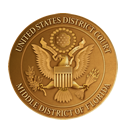- COURTESY. Discovery in this district should be practiced with a spirit of cooperation and civility. The district’s attorneys and the Court are justifiably proud of the courteous practice that is traditional in the Middle District.
- CERTIFICATE OF GOOD FAITH CONFERENCE. Before filing any motion in a civil action, except a motion for injunctive relief, for judgment on the pleadings, for summary judgment, or to certify a class, the moving party must confer with counsel for the opposing party in a good faith effort to resolve the motion. At the end of the motion and under the heading "Local Rule 3.01(g) Certification," the movant:
- must certify that the movant has conferred with the opposing party,
- must state whether the parties agree on the resolution of all or part of the motion, and
- if the motion is opposed, must explain the means by which the conference occurred.
Local Rule, 3.01(g), Middle District of Florida. If the opposing party is unavailable before the motion's filing, the movant should say so in the certification, explain the means by which and when the attempts at conferral occurred, and comply with Local Rule 3.01(g)(3). If the presiding judge deems the conferral or attempt at conferral insufficient, the motion may be denied. Some judges—often in their Case Management and Scheduling Order—require parties to confer in person, by telephone, or by video conference, not just in writing. If the interested parties agree to all or part of the relief sought in any motion, the caption of the motion must include the word "unopposed." Local Rules 1.09 and 3.01(a), Middle District of Florida.
The term "confer" in Rule 3.01(g) means a substantive discussion. Counsel must respond promptly to inquiries and communication from opposing counsel. Many potential discovery disputes are resolved (or the differences narrowed or clarified) when counsel confer in good faith. Rule 3.01(g) is strictly enforced. A motion that does not comply with the rule may be summarily denied.
- must certify that the movant has conferred with the opposing party,
- SCHEDULING. An attorney shall reasonably attempt to accommodate the schedules of opposing counsel, parties, and witnesses in scheduling discovery.
- STIPULATIONS. Unless contrary to Rule 29, Federal Rules of Civil Procedure, the parties may stipulate in writing in accordance with Local Rule 3.05, Middle District of Florida, to alter, amend, or modify any practice with respect to discovery. However, any such stipulations do not relieve the parties from compliance with court orders, absent approval of the Court.
- WITHDRAWAL OF MOTIONS. If counsel resolve their differences and render a pending discovery motion moot, the moving party should immediately file a notice of withdrawal of the motion in order to avoid unnecessary judicial labor. Local Rule 3.09(a), Middle District of Florida.
